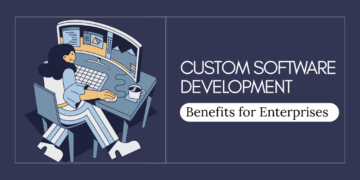The Rise of SaaS and the Legal Challenges That Come With It
Software-as-a-Service (SaaS) has transformed how businesses and individuals access technology. With low barriers to entry, scalable infrastructure, and global reach, SaaS startups have the power to grow quickly and dominate niche markets. But along with rapid growth comes complex legal risk. From IP protection and compliance to contract law and investor relations, the legal demands on a SaaS startup are substantial.
For founders serious about building sustainable and investable ventures, aligning with the best SaaS startup legal services is no longer optional—it’s essential. Legal professionals who specialize in the SaaS sector understand the nuance and speed of the industry and are equipped to offer proactive, customized counsel.
Entity Formation and Founder Agreements
Starting on the Right Legal Footing
Choosing the right business entity sets the tone for future growth. Most high-growth SaaS startups opt for Delaware C-Corps due to their investor-friendliness, tax structure, and ease of issuing shares. However, every decision—from bylaws to board member selection—has legal implications. Missteps at this stage can limit funding opportunities or lead to internal disputes.
Additionally, formalizing co-founder relationships early through founders’ agreements can prevent conflicts later. These agreements define equity splits, decision-making authority, vesting schedules, and responsibilities.
Intellectual Property: The Core Asset
Securing What You Build
In a SaaS business, your product is intangible—it lives in code, architecture, and algorithms. Protecting this intellectual property (IP) is critical. Legal professionals assist with securing copyrights for source code, trademarks for brand names and logos, and patents when innovative technology is involved.
Furthermore, every employee and independent contractor must sign invention assignment agreements. These documents ensure all the work they produce becomes the legal property of your company.
Licensing and Terms of Use
Governing Customer Relationships
The legal documents your customers agree to—Terms of Service, Privacy Policies, and Data Processing Agreements—are often the only binding contracts in B2C SaaS. Poorly drafted terms can open you up to lawsuits or government fines.
Customizing these documents ensures you clearly define licensing, data usage, user responsibilities, limitations of liability, and grounds for termination. A strong legal foundation here ensures smoother user interactions and protects your business from disputes.
Compliance and Data Protection
Staying Aligned with Global Laws
As your SaaS startup gains traction, you’ll likely serve users in different countries. With that global expansion comes compliance with complex data protection regulations like GDPR in Europe, CCPA in California, and similar laws in Canada and Asia-Pacific.
Legal advisors help you draft compliant privacy notices, secure data storage practices, cookie policies, and procedures for handling data breaches. They also structure user consent flows that hold up under scrutiny.
Employment Law for Hybrid and Remote Teams
Managing People and Risk
SaaS startups often employ remote or hybrid workforces across state or national boundaries. Each location has distinct employment laws, classification rules, and taxation obligations. Misclassifying workers or mishandling terminations can lead to litigation or fines.
A legal partner ensures your employment agreements are compliant, clearly define roles and IP ownership, and protect your startup through non-disclosure and non-compete clauses.
Contracts and Strategic Partnerships
Creating Leverage Through Well-Written Agreements
SaaS startups rely heavily on integrations, platform partnerships, affiliate programs, and third-party APIs. Legal support is crucial for drafting and negotiating these contracts. You want agreements that protect your IP, outline responsibilities, and offer recourse if the partnership fails.
Moreover, these agreements should be scalable—able to handle your future growth without constant renegotiation.
Investor Readiness and Fundraising
Structuring Your Capital Right
Most SaaS startups will seek outside funding at some stage, whether via angel investors, venture capital, or strategic partners. Legal services are needed to prepare SAFE notes, convertible notes, or equity investment agreements. These documents must protect your control, clarify investor rights, and minimize future disputes.
Having clean, well-organized legal records is essential during due diligence. Investors will want to review your IP documentation, employment contracts, cap table, and compliance measures. Legal advisors help you prepare all this well in advance.
Dispute Resolution and Litigation Avoidance
Minimizing Legal Disruption
Even with solid contracts and policies, disputes may arise. A disgruntled ex-employee, a data breach complaint, or an IP infringement claim can bring your operations to a halt. That’s why the best SaaS startup legal services also include risk monitoring and preemptive action planning.
They establish clear dispute resolution clauses, including arbitration or mediation procedures, and ensure that your insurance policies align with legal risks.
Legal Automation and Efficiency
Leveraging Technology to Streamline Legal Work
Modern SaaS startups don’t need to choose between expensive legal counsel and risky DIY documents. Today’s leading legal services offer hybrid solutions—access to top-tier lawyers supported by document automation tools. This enables you to generate NDAs, sales agreements, and employment contracts quickly and cost-effectively, with expert oversight.
This approach frees up resources for growth while maintaining legal integrity.
Legal Support During Product Iteration
Compliance as You Scale and Pivot
A successful SaaS product often evolves through multiple versions—new features, integrations, pricing changes, and onboarding flows. Each update may have legal implications, especially when it impacts customer data, third-party APIs, or subscription terms.
Ongoing legal support helps you assess each change, update documents and policies, and stay aligned with regulations. It also keeps you ahead of changes in technology law, such as those impacting AI tools, biometric data, or automated decision-making.
Preparing for Acquisition or IPO
Structuring for Exit
Every successful SaaS founder should build with the endgame in mind—whether that’s acquisition, merger, or public offering. Your legal team plays a central role here by ensuring your startup is due-diligence-ready.
Buyers or underwriters will want evidence of clean IP ownership, compliant data practices, robust contracts, and clear financials. Legal services help manage this process and negotiate favorable terms while minimizing liabilities.
Final Thoughts: Legal as a Strategic Asset
Most SaaS founders are product-focused, and understandably so. But ignoring the legal side of your business can turn small problems into existential threats. Having experienced legal counsel on your side doesn’t just protect your company—it empowers it.
By integrating with the best SaaS startup legal services, you gain a legal partner that evolves with your business, offering advice tailored to each stage of your journey. The goal isn’t just to stay out of trouble—it’s to build something strong, scalable, and secure from the ground up.
























